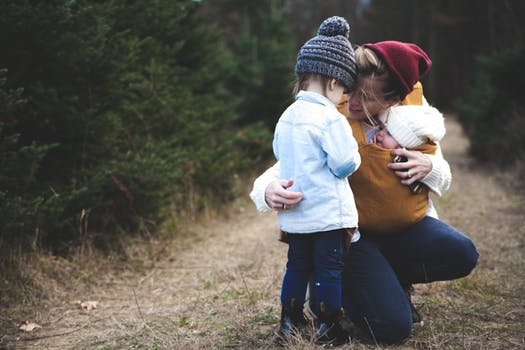Helping a Child Cope with Death
The loss of a loved one is one of life's most profound and challenging experiences, and it becomes even more complex when a child is involved. Explaining death to a child and helping them navigate the emotional journey that follows is a delicate task that parents, caregivers, and educators often face. Children, depending on their age and understanding, may react to death in various ways, and it's our responsibility to guide them through this process with love, patience, and understanding.
In this blog, we will explore the essential steps and strategies to assist a child in coping with death. From open communication to creating a safe and supportive environment, we'll provide insights and guidance to help you navigate this sensitive journey with the young ones in your life. Together, we can provide comfort and reassurance during a challenging time and help children build resilience as they come to terms with the reality of death. Let's embark on this crucial journey together.
Children often experience shock and denial initially, as the concept of death may be difficult to grasp. They might ask questions like, "When will they come back?" or "Will I die too”. At this stage, reassurance and comfort are essential.
Anger and frustration can follow, as children may express their confusion and sadness through behavioral changes or outbursts. They might act out or be irritable, and it's crucial not to dismiss these emotions but rather address them with understanding and empathy.
Bargaining is another common stage. Children may attempt to make deals with a higher power, thinking that if they promise to be good, the loved one will return. These bargaining efforts reflect their longing for things to return to the way they were.
Depression can manifest as sadness, withdrawal, or changes in eating and sleeping patterns. It's important to offer a safe space for children to express their sorrow, ensuring they know their feelings are valid.
Eventually, children gradually come to terms with the loss. This doesn't mean they won't continue to feel sadness, but it signifies a deeper understanding of the reality of death.
Open Communication
Open and honest communication is a cornerstone of helping a child cope with death. It's natural for parents and caregivers to feel uncertain about how to approach this conversation, but creating a safe space for dialogue is essential. Here are some tips:
1. Choose the Right Time: Find a quiet, comfortable time to talk with the child, away from distractions or interruptions.
2. Use Age-Appropriate Language: Tailor your explanation to the child's age and understanding. Avoid euphemisms and be direct but gentle in your approach.
3. Start with What They Know: Begin by asking what the child already knows about the situation. This allows you to correct any misconceptions and address their concerns.
4. Answer Their Questions Honestly: Encourage the child to ask questions and provide honest, straightforward answers. It's okay to say, "I don't know" when you don't have all the answers.
5. Reassure Them: Make sure the child knows that you are there for them, and they can always come to you with their thoughts and feelings.
Creating a Safe Environment
Children need a stable and supportive environment during times of grief. This includes maintaining routines and consistent expectations. While some aspects of life may change due to the loss, keeping familiar structures can provide a sense of security.
Physical and emotional reassurance is equally important. Hugs, comforting words, and active listening can help the child feel loved and secure. Additionally, avoid any major life changes if possible, as this can add to their stress during an already tumultuous time.
Empathy and Validation
Empathising with a child's emotions is crucial. Let them know that it's okay to feel sad, angry, or confused. Validating their feelings, rather than dismissing or denying them, helps them process their grief and reduces any guilt or shame they might experience.
Supporting a grieving child is an ongoing process, as their emotions can ebb and flow over time. Be patient and understanding as they navigate their grief journey.

